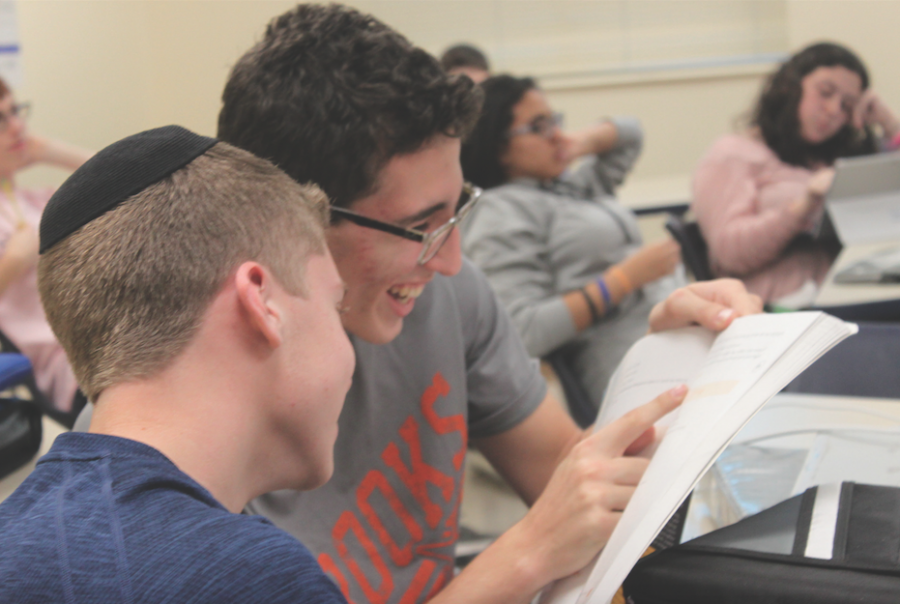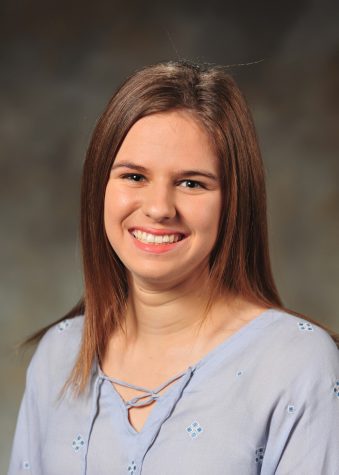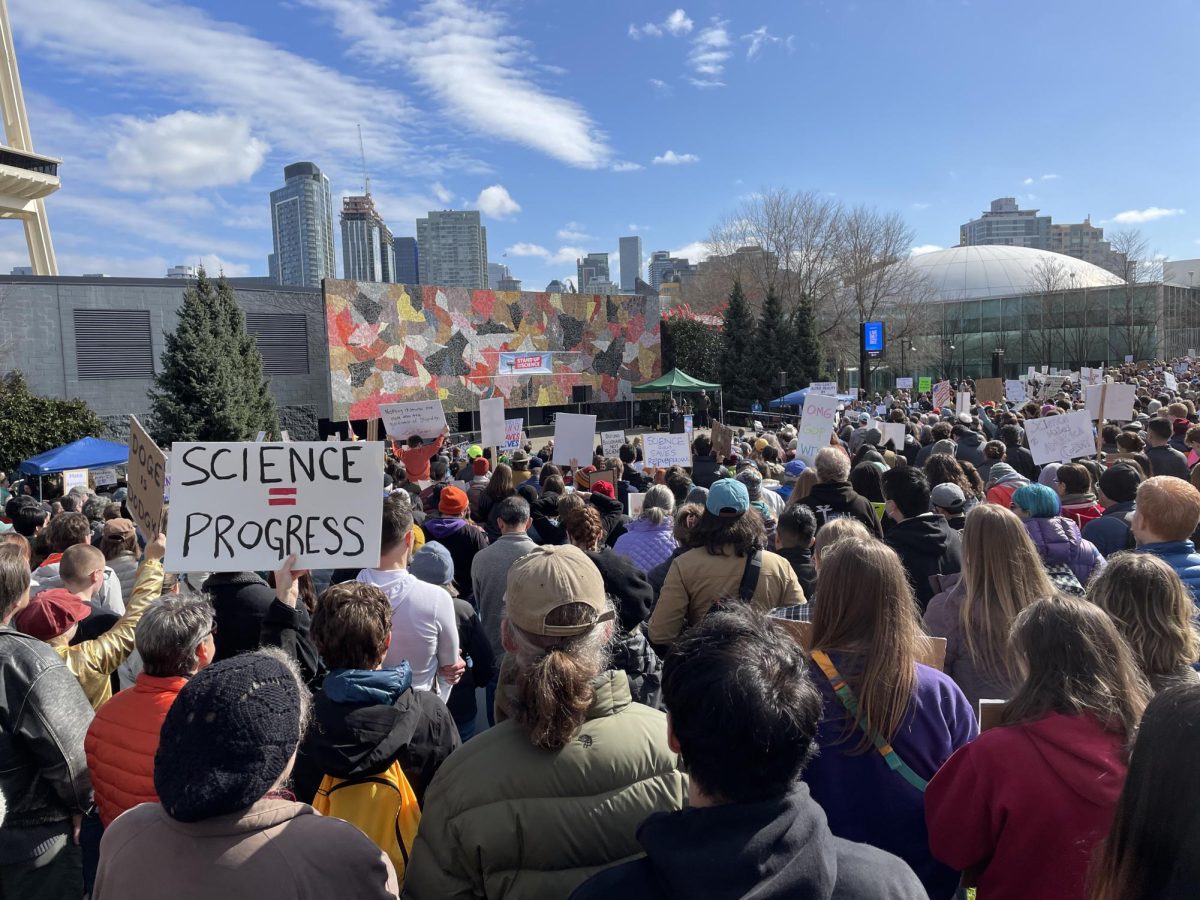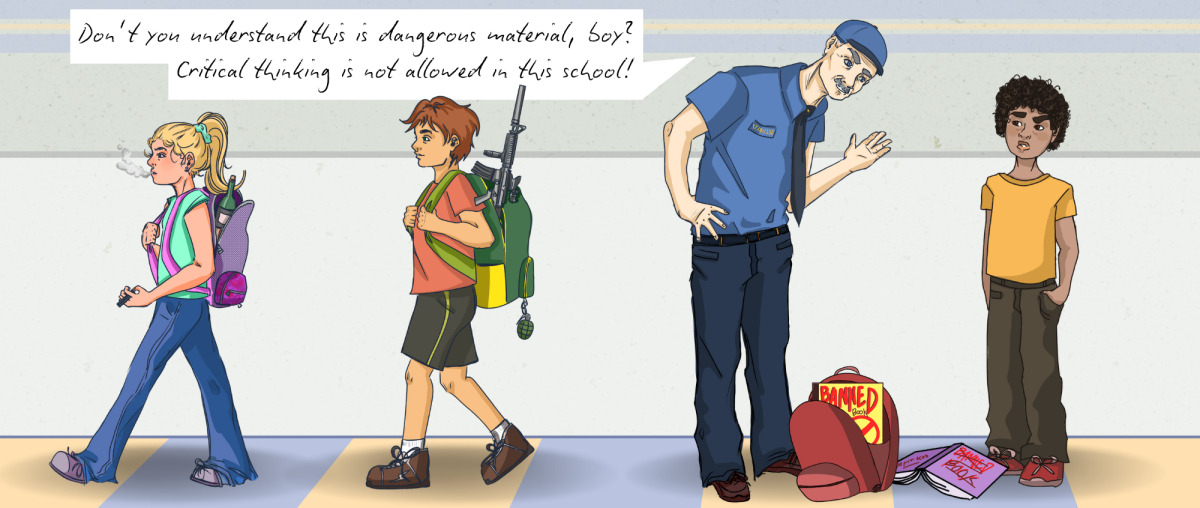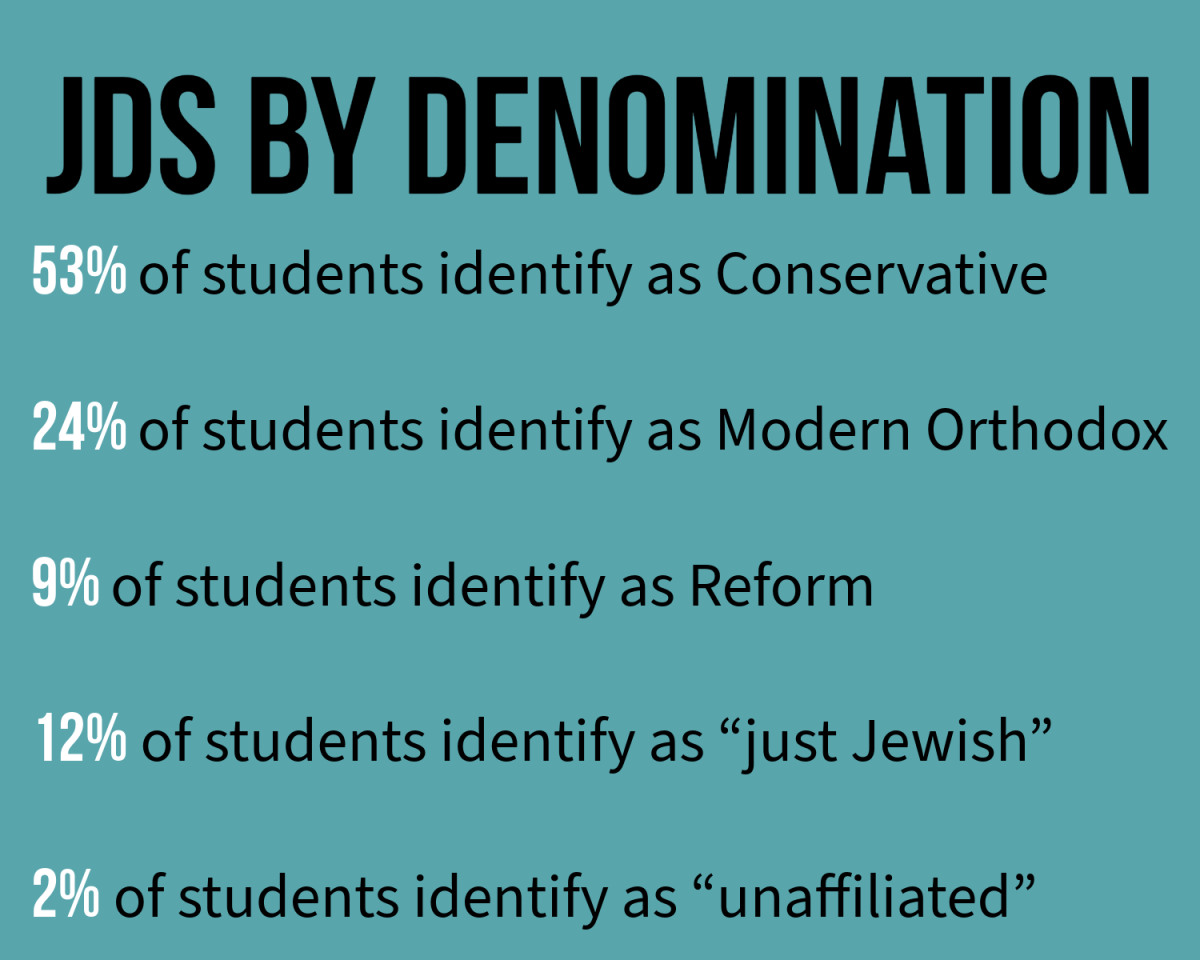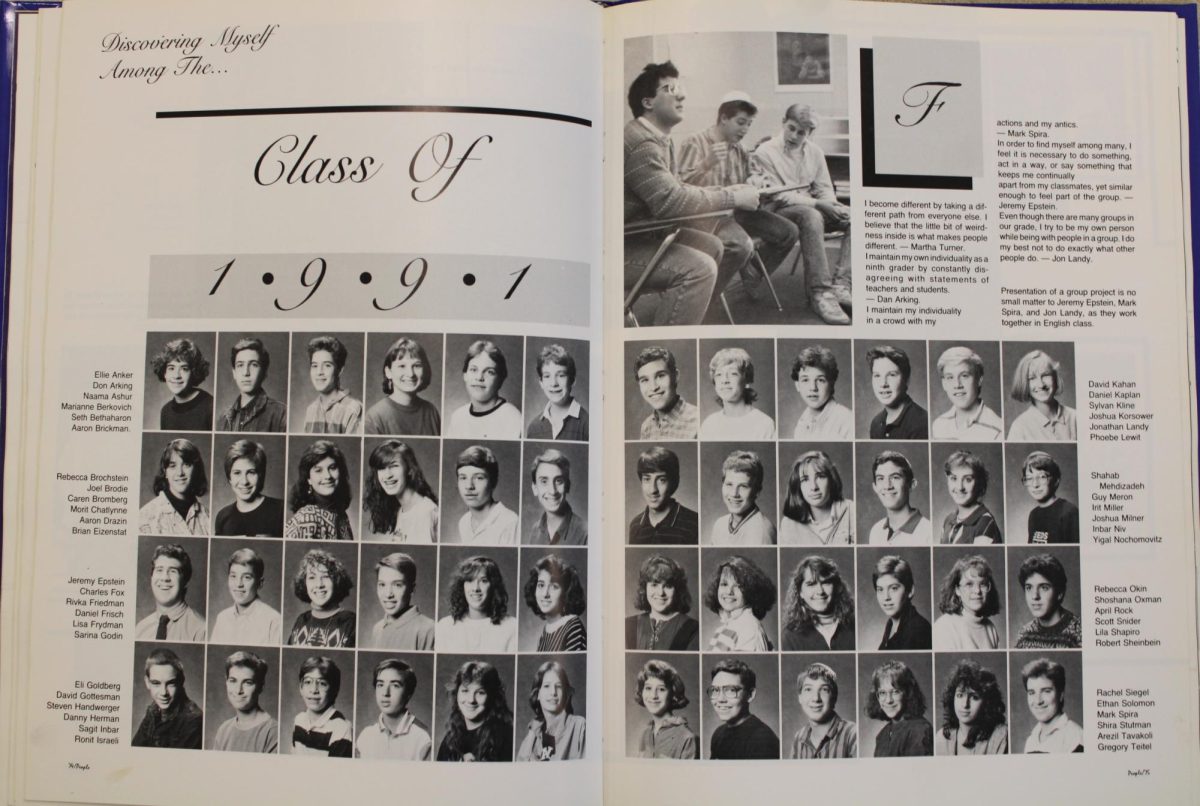Bridging the gap
Arabic students forge bond with Syrian refugee family
Sophomores Ari Gershengorn and Daniel Morgan study for a quiz in Arabic II. They, along with two of their classmates, tutor children of a Syrian refugee family twice a month.
November 28, 2016
Some speak Arabic and the others speak English. Some are Syrian and the others are American. Twice a month, their lives intersect.
Every other Sunday, four CESJDS Arabic II students volunteer one-on-one with four Syrian refugees and help them learn English, review their course material and complete their homework. In return, the JDS students have the opportunity to practice their conversational Arabic and gain exposure to the family’s Syrian dialect.
The four sophomores are part of a larger effort to help the al-Abadi* family. A year ago, Rabbi Michael Feshbach of Temple Shalom in Chevy Chase, Md. proposed the idea to his congregation that, in light of the Syrian refugee crisis, they adopt a family of refugees and aid them in becoming self-sufficient American citizens. Last spring, the synagogue began working with Lutheran Social Services of the National Capital Area, an organization that helps refugees resettle in America and helped to arrange the family’s arrival.
“We spent some time thinking about how much we could do, like what could we afford,” said Karen Green, coordinator of the Temple Shalom Refugee Response Team. “Did we want to help them pay for their rent for a year? Did we want to just set up their apartment? How much could we do? What could we do? We decided that we wanted to be involved for at least six months.”
The al-Abadis are a family of six: two parents, Iman and Ameer, and four children, Mariam, Sarah, Nancy and Omar. Four years ago, they left their home in Daraa, Syria due to the growing violence in the region. They then moved to Jordan, where they lived in an apartment and received support from family members who had already fled Syria. After living in Jordan without work or basic utilities, the family arrived in the United States on Aug. 25 and was welcomed by the members of Temple Shalom.
Around 45 congregants formed various committees to provide the family with clothing, furniture, food and other services that aided them in their transition. Volunteers from the congregation also helped expedite the paperwork process.
“[The volunteers] are able to do things fast but they still have to all get their shots, get registered for school, get their social security numbers,” Green said. “When you come as a refugee, you have no identity here, so you can’t get anything done until you establish your paperwork.”
The al-Abadis currently live in a Prince George’s County neighborhood with other international families. The children attend Templeton Elementary and William Wirt Middle School, and have spent the past few months acclimating to their new community. Sarah, the oldest daughter, likes the “nice people and kind treatment” and aspires to become a doctor. Her sister, Mariam, wants to be an engineer when she grows up and was surprised by the woods and nature of the United States.
The al-Abadis spoke no English when they came to America, so Iman and Ameer take government-funded English classes at Prince George’s Community College. Ameer, who worked as a truck driver in Syria and was unemployed in Jordan, found a job transporting furniture through Lutheran Social Services and is also a barber. Iman hopes to join her husband in the salon business.
Despite the fact that the al-Abadis are settled into their new home, they are still adjusting to life in the United States and the challenges that come with it, especially learning the English language.
“I was trying to help one of the middle-schoolers with her math and it was a word problem,” Green said. “This is somebody who has been in the country for six weeks and it was all of this language that, living where we live, you would totally never use. It was about, if there are 60 hay bales in the barn and 32 bales in the shed. And I’m like, ‘holy cow, she can’t solve this problem, because she doesn’t know what hay, bale, shed and barn [mean].’”
Alicia Sullivan, member of Temple Shalom and mother of senior Daniel Baumstein, has been working to break this language barrier. In addition to setting up the family’s apartment and taking the daughters to the College Park Aviation Museum, Sullivan brought Iman to Starbucks to welcome her to the community and practice her English skills.
Because of Iman’s difficulty with the language adjustment, Sullivan uses an application on her phone that translates what she says into Arabic text so that Iman can more easily understand her. According to Sullivan, she and Iman conversed like two regular mothers at Starbucks. They talked about baking, shopping and how the kids are adjusting to public school food. Iman loves “everything” about America and said that the people are so “warm and nice.”
Sullivan hopes to visit a library with Iman in the future to continue working on her English skills. She also created a plan to teach the Syrian kids English.
“This lightbulb went off in my head and I thought, you know, JDS teaches our kids Arabic,” Sullivan said. “Wouldn’t it be kind of cool if our teenagers could work with these lovely young kids?”
In early October, Sullivan reached out to guidance counselor Rachel Soifer, who then spoke with Arabic teacher Hani Abo Awad, about finding four Arabic students to work with the Syrian family. Sophomores Ari Gershengorn and Daniel Morgan work the two oldest children, and sophomores Devira Friedman and Kate Sosland work with the youngest two. The JDS students use basic Arabic and English when they speak with the Syrians.
“I’ll try to explain prime factorization to her in mostly Arabic, but I try to include some English so that she starts learning,” Morgan said. “I try to use very simple words like ‘small’ and ‘big,’ and I know the words for numbers [in Arabic.]”
Abo Awad gives his students time in class to prepare to meet with the al-Abadis, answers any questions that they have and finds that this experience has improved his students’ conversational Arabic. Morgan agrees that it is becoming gradually easier to communicate with the family.
“It’s definitely helping my Arabic,” Morgan said. “I think there’s a noticeable difference when I’m in class now, some things are easier now. I was definitely nervous the first time, but the more I go, the less I am nervous. I feel like my Arabic is improving and their English is improving. [The language gap] is coming closer together and it makes it easier for both of us.”
The students typically visit the family for two or two and a half hours and have even tried authentic Syrian food while at the family’s home. Iman once prepared a dish with potatoes, salt, water and flour, which Morgan enjoyed. Beyond the meals and the ability to practice his Arabic skills, Morgan appreciates the newfound bond with the al-Abadi children his tutoring experience has inspired.
“They’re really nice people, so I think I’ve learned valuable social skills from them, even though they’re still so young,” Morgan said.
The JDS students plan to work with the Syrian family throughout the rest of the year as long as the kids still need help with English. Ultimately, however, the objective is for the al-Abadi children to be able to speak English and complete their homework on their own.
“That’s the goal, that this family will have our help, and then will be self-sufficient,” Sullivan said. “Maybe friendships will develop and so forth, and certainly the Syrian-Jewish relationship, Arab-Jewish relationship, will be a special part of this whole interaction too.”


